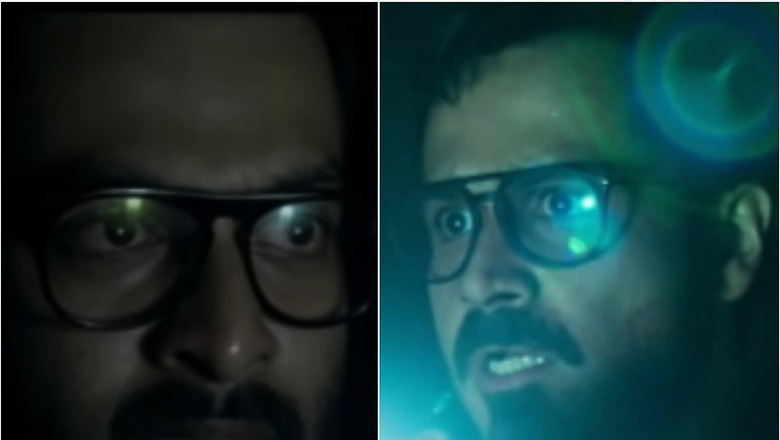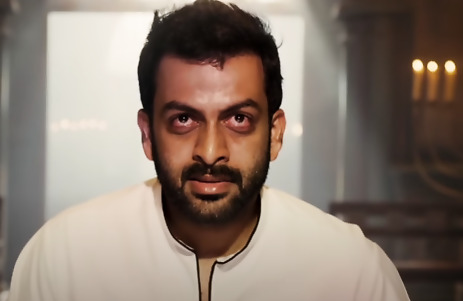
views
In this weekly column, Reel Retake, we compare the original film and its remake. Beyond highlighting the similarities, differences and measuring them on the success scale, we aim to discover the potential in the storyline that spurred the thought for a newer version and the ways in which a remake could possibly offer a different viewing experience. And if that is the case, analyse the film.
The movie in focus this week in Malayalam supernatural-horror film Ezra (2017) and the Hindi remake of it Dybbuk.
What’s Ezra about?
Ezra blends folklore and horror on the backdrop of social issue of discrimination based on caste and religion. The movie opens with a mysterious-looking box with carvings kept at an antique seller’s shop. It is shown to hold demonic powers as it kills a worker in the shop itself. The police try to find some reason behind the killing of the man but find no leads.
We are introduced to Ranjan Mathew (Prithviraj Sukumaran) and his wife Priya Raghuram (Priya Anand). They move from Mumbai to Kerala after marriage. Priya then buys the mysterious box from the antique shop. Upon opening it, paranormal experiences begin. Ranjan invites his uncle Samuel to his house who had looked after him as an orphan. Samuel realises something is wrong and immediately tells Ranjan that the mysterious looking box is a Dybbuk box, with the name Abraham Ezra written on it in Hebrew. Ranjan begins to find more about the Dybbuk. He is told that the Dybbuk only possesses people with mental illness or children who are under three years. Ranjan learns that Priya is pregnant and realizes his child will be possessed.
In his quest to save the family, he discovers more about Abraham Ezra and comes to know about his tragic love story. In a flashback, we are shown for Abraham’s love for Rosy could not be fulfilled because they belonged to different religions. Rosy dies by suicide while she is pregnant with Abraham’s baby without him ever knowing that he was the baby’s father. In the aftermath of an incident Abraham is paralysed and his father vows revenge and uses black magic as means to wreak havoc. He euthanized and puts his son’s soul into a Dybbuk box, which on opening will release Abraham’s spirit that will possess and destroy. A wooden dummy is buried in place of Abraham’s body and the corpse is dumped in the sea by his father. Thus is created the Dybbuk box which eventually finds its way to Ranjan.
In the climax, it is revealed that not Priya and the baby but Ranjan was possessed by the Dybbuk owing to his mental condition growing up. Ranjan is exorcised and Dybbuk box is thrown into the sea just like Abraham’s body was dumped. Two men find the box and plan on opening it.
Wherein lies the potential?
Director Jay K’s Ezra gets the tone right for the mysterious and dark ambience it is trying to create. Since the start, the elaborate cinematography, that works mostly in shadows, invites us into the eerie world. In contrast, we are shown the happy-go-lucky couple Priya and Ranjan, played convincingly by Priya and Prithviraj, who become vulnerable by virtue of their love and bond. Stakes are raised further when it is revealed that they are going to expect a child and now the paternal instinct kicks in for Ranjan.

The blend of modern city life, folklore that needs to be unearthed and under-stated politics rooted in the tragic tale of love in itself has the potential to invite and absorb viewers. Ezra packs it up with a terrific score and supernatural elements so that it becomes a good viewing experience. The tone keeps shifting but it only helps the narrative unfold in the most brilliant manner. Prithviraj’s performance keeps the interest going on right till the end.
The movie is burdened with some clichés like the exorcism scenes, black magic story and the question whether the supernatural elements would ever come back to haunt us but you can always overlook them as the story becomes engaging with every passing stage. It is not filled with scares at each turn but the strength lies in its tone and the all-pervading sense of foreboding.
What’s with Dybbuk, the Hindi remake?
Emraan Hashmi reprises Prithviraj’s role and Jay K directs again. The tone gets eerie at the colonial bungalow in which Sam (Hashmi) and Maahi (Nikita Dutta) decide to live. All elements are retained from the original without an eye for freshness. What lacks in the Hindi version are the visual effects and cinematography, which were far more effective and atmospheric in Ezra. In a shorter run time, Dybbuk retains all major plot points but the essence of the original is missing. In fact, while Ezra is rooted in political history, Dybbuk is rid of any such commentary.
The shorter duration of the remake manages to retain all the major horror ingredients as well as the twist before the climax. Some of the scary scenes have been re-made in the new version too. But the essence of Ezra never quite enters Dybbuk. There are familiar horror tropes that will make you go , ‘oh, no!’ every time you see the stage setting up for them. In terms of performances, Emraan has done this genre way too many times before and nothing new shines through in his acting here. He is just following the director’s lead and brings no novelty to the character he is portraying.
Success meter
Even though Ezra is not one of the most acclaimed horror films made, it is certainly fresh in perspective and the winning quality here is how a message is hidden in the most unlikely of genres. In Dybbuk, unfortunately, the movie done twice over does not bring too much effect or scares.
Read all the Latest Movies News here



















Comments
0 comment